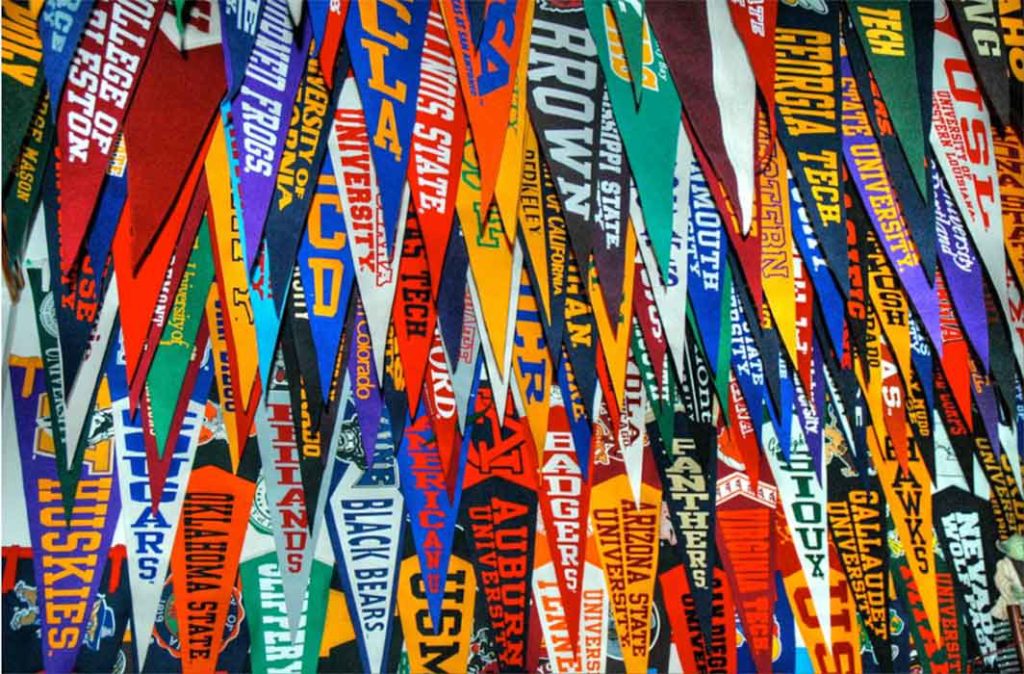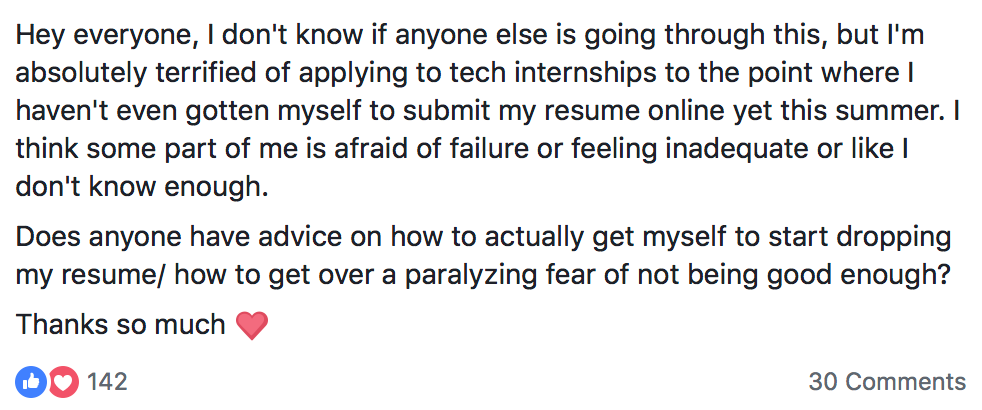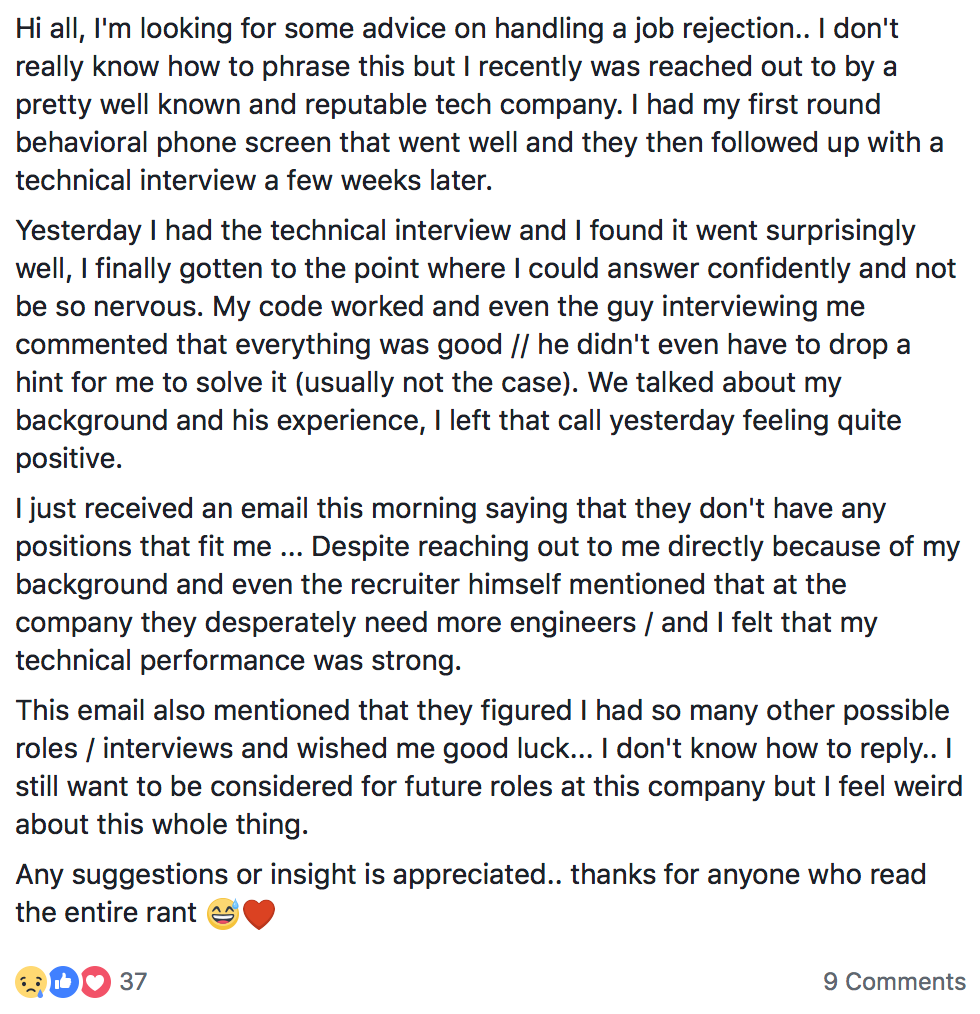
Many college women pursuing coursework in computer science and engineering speak to feelings of isolation and having to ‘go it alone’. They often feel uncomfortable in classroom settings where faculty members do not look like them. In these same classrooms, men often outnumber women, and even when the gap narrows men may dominate the conversations that occur. Often times, women peers who share a similar passion for technology keep to themselves, or even believe there is a need to compete with women in their major, on their campus.
Compounding the feelings and perceptions of lack of campus community, both college women and men observe peers seemingly gliding through classes, exams, and interviews with ease while internally they are often struggling in every aspect of their lives. Stanford students coined the term ‘Duck Syndrome’[1]while Duke students refer to the façade as ‘effortless perfection’[2]. Such modeled behavior by classmates often results in self-doubt, impostor syndrome and shaken confidence.
When looking for support and a reality-based sounding board for college and general life, it can be difficult to turn to campus peers who seem to be doing just fine, display indifference, or express a clear lack of willingness to share vulnerabilities within their campus communities.
I spent much of the summer speaking with college women across the Rewriting the Code community about their support systems and networks. This is a crucial topic for women in computer science and engineering where alack of community is often cited as a reason for the exceptionally high drop-out rate from these STEM majors[3]. The following are excerpts from qualitative interviews conducted during the 2018 summer across the RTC community:
- Several students characterized situations whereby women they considered friends shutting down when asked about the recruiting process, interviews, and internships, taking on an air of indifference rather than share their knowledge or insight.
- A rising sophomore attending a top computer science program at her university asked if I could introduce her to women at a local university, because the women in her CS classes showed no interest in interacting with her.
- Another student shared that her friend, and fellow CS major, did not share a wonderful opportunity for women in tech on their campus while she was studying abroad. Upon returning, she learned of the opportunity and asked her friend why she did not let her know about the program and deadline — that she missed — while she was out of the country. An insincere response, which she did not believe, has left her wondering ‘why’.
- Yet another student shared that her ‘good friend in the major (CS)’ would not even share her summer project/internship work after it was completed. Her perception of the behavior was that of ongoing protectionism…she might want to return to that company and there was a chance she could be subverted if she shared anything that could give someone a ‘leg up’ and derail her ability to return (as she would be replaced by the person with whom she shared this knowledge).
The disappointment in campus peers expressed by many women was often surprisingly countered by their ability to connect with college women outside of their universities and colleges. The indifference, competition and guarded behavior turned 180 degrees to that of enthusiasm, encouragement and vulnerability when the commonality of campus was removed. This cross-university support system took place in in-person mentoring groups, social outings and across Rewriting the Code’s virtual on-line Facebook community. By putting people together who do not interact side-by-side every day, we removed local campus competition, resulting in greater openness, honesty and mutual support across the community. We created a safe place for the women to thrive.
One student praised the RTC closed Facebook group as an incredible resource where her questions are often addressed by multiple women in tech across North America. She shared that if such a group existed at her school, no one would respond…’there would be the sound of crickets’. Examples of posts from RTC’s closed Facebook group in August 2018:




Rewriting the Code will foster opportunities for students to connect in person and in virtual settings 12 months a year — unending and tireless support for all students. Summer internships offer valuable in-person interaction and relationship building. However, fostering community building is essential the other 40 weeks of the year. Regional communities offer women who attend colleges and universities in close proximity, such as Duke, UNC, NC State, Meredith and NC A&T in the extended Triangle region of NC, and City College, NYU, Columbia, Brooklyn College and Rutgers in the greater NYC region, fantastic opportunities to develop relationships over their four-year undergraduate careers.
Rewriting the Code corporate partners support women-focused initiatives such as technical recruiting tips, social events, career path assistance, exposure to thought leaders, and personal skill development. Inter-university relationships allow for the sharing of broader views, perspectives, experiences and diverse thought. Together these support structures also allow for the development of a robust network of women who may advance a collaborative spirit and offer a sounding board and advocacy throughout decades of a professional career in technology and beyond.
Women who wish to study computer science and engineering must build strong communities and network as they foster relationships shared through common interests and passions. Communities also provide strength, confidence and the grit when challenges present themselves. The ability to garner advice, perceptive and courage from peers who understand and appreciate experiences and perceptions are essential resources to persevere. It is a great feeling to know you have your people to go to…women who will have your back.
About Rewriting the Code:Rewriting the Code is a 501(c)(3) nonprofit organization that has developed a community of exceptional college women with a passion for technology. RTC empowers women to become the next generation of engineers and tech leaders by providing community, industry education, professional and personal development, and hands-on experience though partnership with companies across North America.
Fellowship application open through October 7, 2018. Visit: https://rewritingthecode.org/fellowship-program/